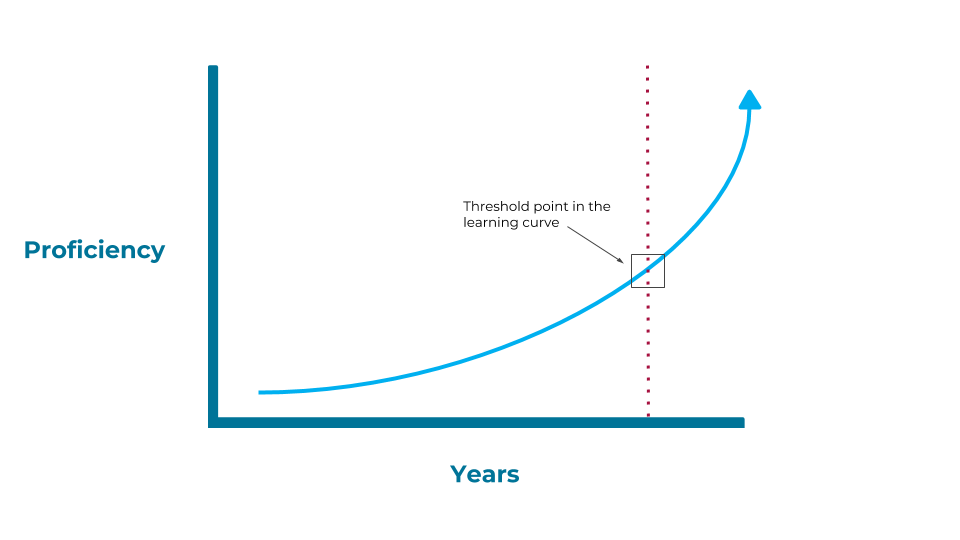Why do you need a cloud implementation partner?
If you want to take full advantage of what the cloud can offer your business, with all of its benefits, then you’re going to need specialist expertise to do so. While it is true that the cloud is bringing down both the cost of computing and the required level of expertise – you no longer need to know how to operate a datacenter, or even to physically build a server, for example – specialist knowledge is still required in order to be able to manage these resources properly.
What does a cloud partner do?
Specialists in the cloud will be able to answer all of the questions that you have regarding the cloud, and how you can migrate, deploy and use its scalability to grow your business.
In particular, your cloud implementation partner should have the specialist knowledge and skills that enables them to:
- Apply best practice to ensure that your data/information/application remains protected from anybody that shouldn’t have access.
- Take your requirements and design a solution that is going to solve your future challenges as well as your current ones. All cloud infrastructure should be scalable to enable your business to grow – in whichever direction that ends up being.
- Provide advice as to what will work in the cloud – and even perhaps what won’t, but would instead require further work/migration in order to do so.
- Draw on experience working with multiple cloud providers. If a cloud partner has only ever worked with one (AWS, for example), they won’t be able to tell you the advantages/disadvantages of other providers, and so may not be able to advise on the best possible solutions. (Disclaimer: we at Box UK are both an AWS and Microsoft partner, and have also worked closely with Google Cloud Platform and Rackspace.)
Why should I consider an external cloud partner over an internal solution?
You could of course train a member of your existing team to deploy onto the cloud, but this would take them away from their current role, potentially for long periods of time (as mentioned below, cloud projects can require a great deal of work, certainly in their early stages). As a result, you may end up having to recruit for a new role anyway; minimising your potential for cost savings.
Additionally, there are pitfalls with learning as you go – both with regards the way that you plan cloud infrastructure, and its setup. While the cloud is generally more forgiving than hardware (where if you order the wrong physical server, you are usually stuck with it), poor planning can mean that you end up hamstrung by technical decisions made early on in your learning.
Wouldn’t it be more efficient, then, to hire a cloud partner that already has the experience and expertise you need? So that instead of spending the early phases of your project getting up to speed, you can get started collaboratively architecting a solution that drives your business forwards (for example, just look at the results we’ve helped Thinkbox and Investec Asset Management achieve as their cloud implementation partner).

A typical “learning curve”
Alternatively, you could hire somebody in to help kick start your cloud project – or even an entire team. There is indeed likely to be a huge amount of effort required at the beginning – as requirements are identified and work is broken down into smaller projects – which would likely be constrained by having a single individual responsible (and mission-critical infrastructure should never just have one person in the know anyway).
However, once the majority of the planning has been completed it will be down to project teams to implement the changes required to move into the cloud. You could find the employee/s you’ve just hired hanging around during this phase, waiting for the project teams to complete the work before they move onto the next task, which could prove expensive and a waste of resources. And once the changes have been implemented, it will mainly be a case of maintenance and improvement – unlikely enough work for an entire team.
In the same way that you’ll want to scale your usage of the cloud, in an ideal world you would similarly scale the team you use to manage this technology. This can be achieved by using a experienced partner that can add and remove staff from your project as needed; helping you keep your costs lower than hiring your own staff. Additionally, finding staff with these skills can be difficult and, depending on your hiring approach, it could be a number of weeks before you even make an offer – whereas partnering with an external supplier will provide you with instant access to the skills you need.
Questions to ask when choosing a cloud partner
Depending on your business, this could be a little like the chicken/egg scenario. You want to utilise the scalability of the cloud, but you aren’t quite sure what would work in the cloud, so you can’t plan on what you would like to do. However, considering the following points should serve as a useful starting point to ensure you choose a supplier that can help you get the results you need – whatever they may be.
(We’ve also compiled the below criteria into a handy matrix that allows you to easily compare different suppliers, available to download in either PDF or Excel format.)
1. Is your cloud partner experienced with multiple solutions?
Although Amazon has the biggest public cloud, there are numerous other large providers out there, such as Microsoft Azure and Rackspace. Depending on what your project looks like, one cloud solution may be more suitable than another. You want to make sure that the partner you pick is able to inform you about and even support multiple cloud solutions.
2. What’s their more general experience like?
Has the cloud partner you’re looking at got experience of other cloud migration projects similar to what you’re after? Do they have or need specialist experience in any particular area of your business? Do they have employees that are qualified in the cloud providers and tools that you want to use? If you aren’t looking to migrate all of your workload into the cloud – are you sure your cloud partner can support this hybrid configuration?
3. How do they work?
Does the way that your prospective cloud partner works match your organisation? If you operate an Agile delivery method, for example, will your cloud partner work in the same way? If they don’t (or won’t), then this is likely to cause friction within the project as it’s likely to be a highly collaborative one. Are they able to scale alongside your business? You don’t want to be restricted to a single member of staff when really you need a team of 3 or 4 people.
4. What levels of support do they offer?
While of course you want your web applications and sites to run 24/7, it might be that your cloud partner only offers 9-5pm support Monday-Friday. What happens if your solution falls down over the weekend? Or at 7pm on Friday – which, incidentally, is actually your busiest time? You need to ensure that your cloud partner can support you at the levels you require, and that this is detailed in the service level agreement you have with them.
5. Do they have standards like ISO 9001 and ISO 27001?
ISO 9001 means that a partner follows written processes and has incident management systems if things go wrong (at Box UK, for example, we’ve held ISO 9001 since 2011). It should also mean that they are continually improving their systems. ISO 27001 is a security management standard, which will ensure your partner is following best practice within their organisation (and we’re pleased to say we achieved this accreditation in 2017).
6. Is there any lock in?
It might be that after a short time, a new cloud provider comes to the market with an offering that matches your requirements more closely. In this situation you don’t want to be locked in to your current cloud provider. A partner might also specify that they only support a single cloud hosting solution which could introduce further disadvantages – say Amazon were to launch a new “AWS v2” in future, for example, this may prevent you from using it.
Conclusion & next steps
Choosing a suitable cloud partner is an incredibly important step to fully leverage the cloud for your business. Following the steps above, and using our comparison matrix should set you in the right direction when choosing your cloud partner, but for added confidence we’d suggest starting with a trial project.
This will enable you to evaluate the quality of the solutions your partner delivers while minimising the risk of downtime/issues that could be faced if you dived straight in. And if still you don’t feel comfortable doing this, then I’d suggest asking a prospective partner to perform a review of your existing setup before you start, to get an idea of how they work without impacting your current systems.
Download the cloud partner comparison matrix (PDF version)
Download the cloud partner comparison matrix (Excel version)

